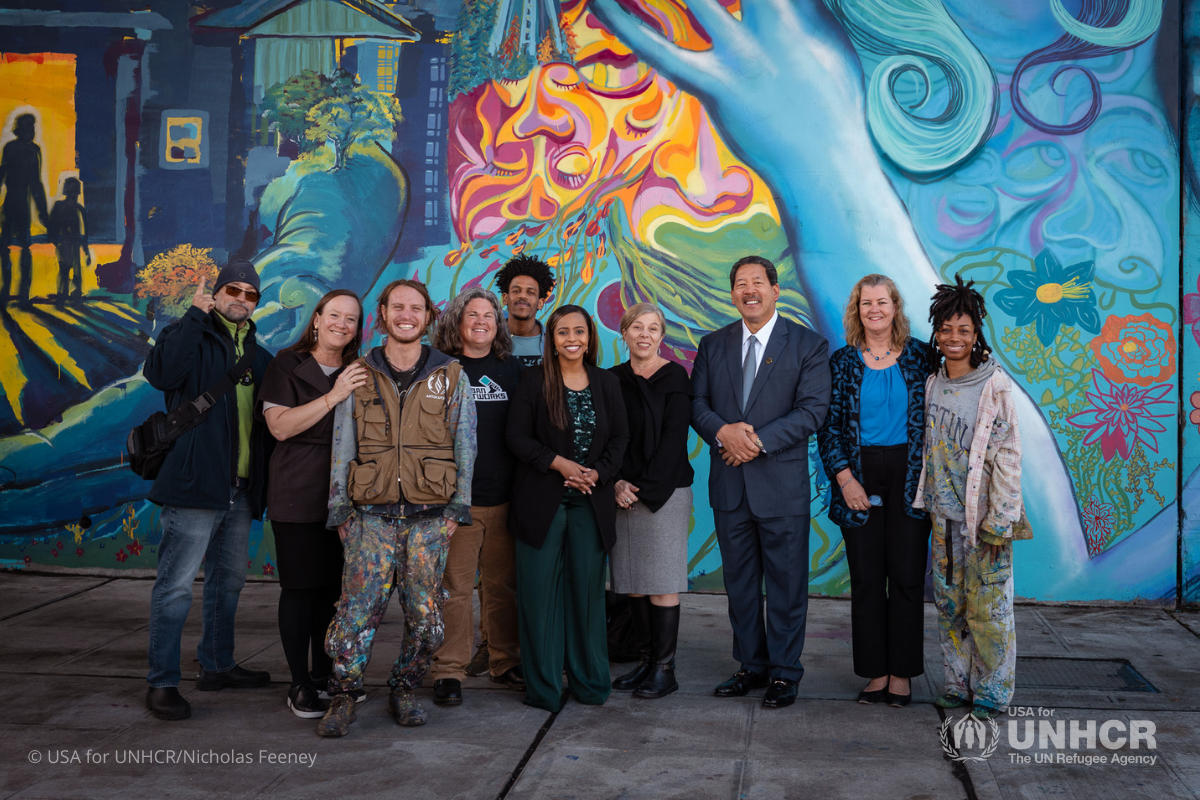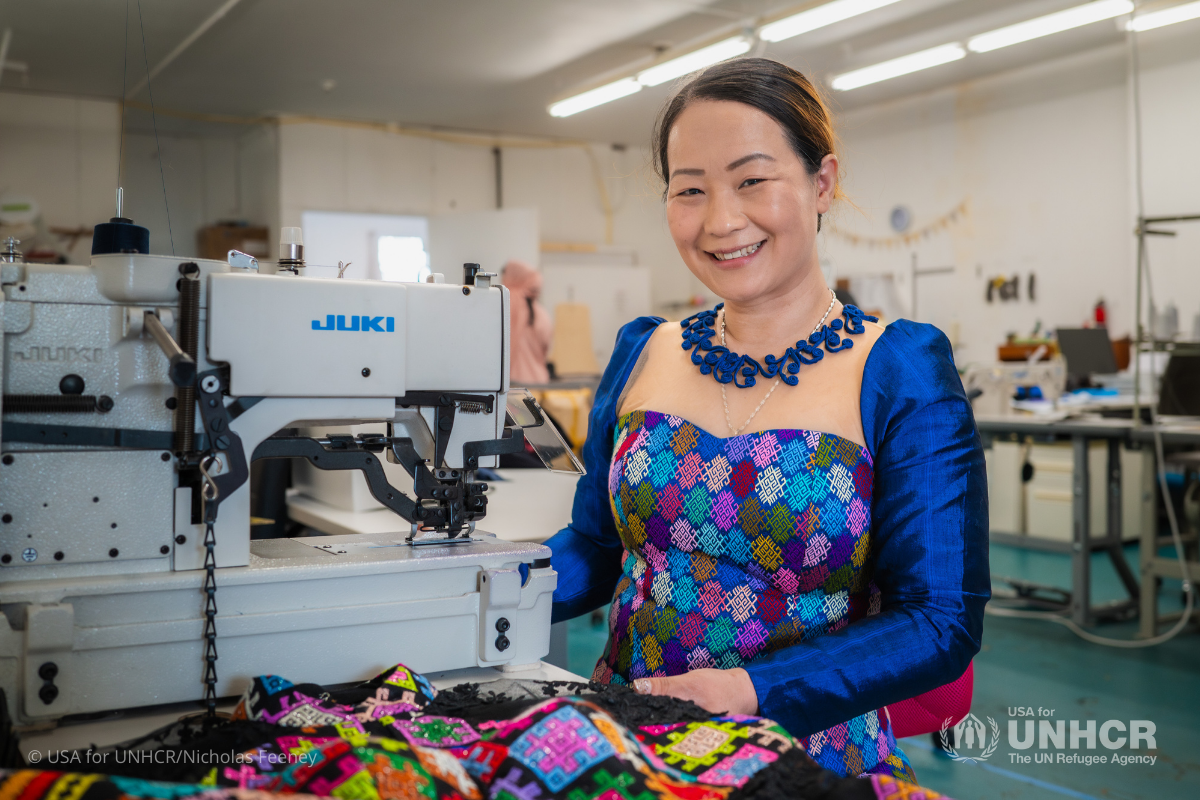Project Feast is a recipe for success for refugee women in Washington State
The Ubuntu Street Café in historic downtown Kent serves an eclectic mix of international fare for locals and is helping refugee and immigrant women build brighter futures in Washington State. The cafe, operated by the local non-profit organization Project Feast, is part of a 14-week culinary apprenticeship program that combines classroom, kitchen and English language lessons and teaches industry standards for food safety, knife skills and customer service.
“The Culinary Skills Apprenticeship program is our main program,” shares Danny Rice, Project Feast’s Program Director. “We are a social enterprise, so we have the cafe to generate revenue, but our mission is to train immigrants and refugees who would like a career in the culinary field.”
The apprenticeship program teaches essential skills needed for employment and helps apprentices grow their confidence and forge new friendships.
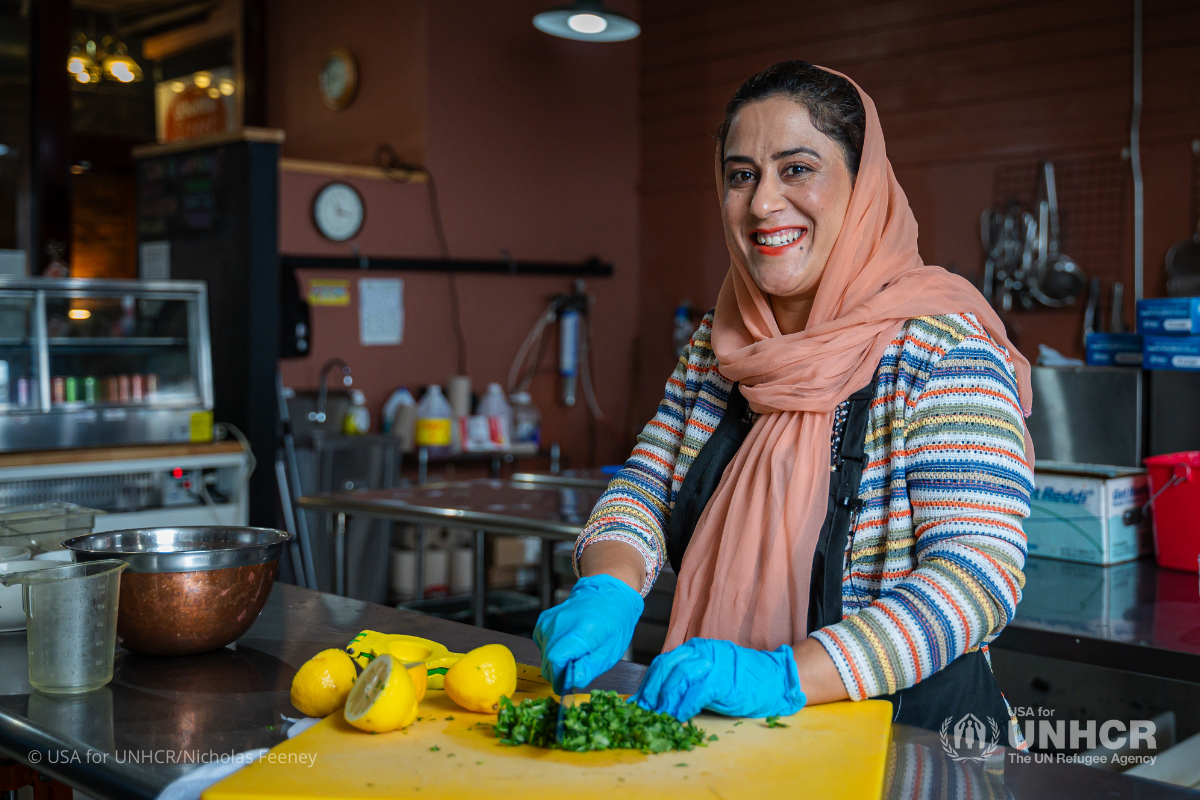
For Zohal, a resettled refugee from Afghanistan, Project Feast gave her a chance to improve her English, make friends and lay roots in a new community.
“When I arrived in Seattle, I [was] so excited…[and] I was very scared, because I start my life from zero [here].” Zohal shares. “I don't know where to start or who will help me. The culture is different. Everything is different. But I come here to Project Feast, and I think, ‘Oh, Zohal, you have this place, you have more friends here. You can move, you can start now.’ That was great for me.”
Each 14-week cohort is limited to six apprentices, allowing Project Feast to tailor programming to individual needs. No formal food industry experience is required; for many, Project Feast is the first professional kitchen they will work in. Other apprentices, like Abby, an immigrant from Trinidad and Tobago, come to Project Feast to help grow existing food businesses.
“I found Project Feast at a time where I was considering closing my business because it was just really rough trying to navigate the food industry in this country,” Abby shares. “And one day I was browsing Instagram and I saw a post about Project Feast. I was like, ‘Wow, this is exactly what I should be doing.’”
At Project Feast, Abby learned entrepreneurial skills to help grow her business and connected with Spice Bridge, a King County food business incubator. She also met Zohal, and the two quickly became friends.
“What first drew me to her is that she had a really warm smile and she also seemed like she was the group's leader. All the other ladies, they looked up to her,” Abby warmly recalls.
It’s no coincidence that Zohal gained a reputation as a leader in the program; before fleeing Afghanistan, she was a teacher. A hallmark of Project Feast’s apprenticeship program is recognizing and building on the skills and background the apprentices bring to the kitchen.
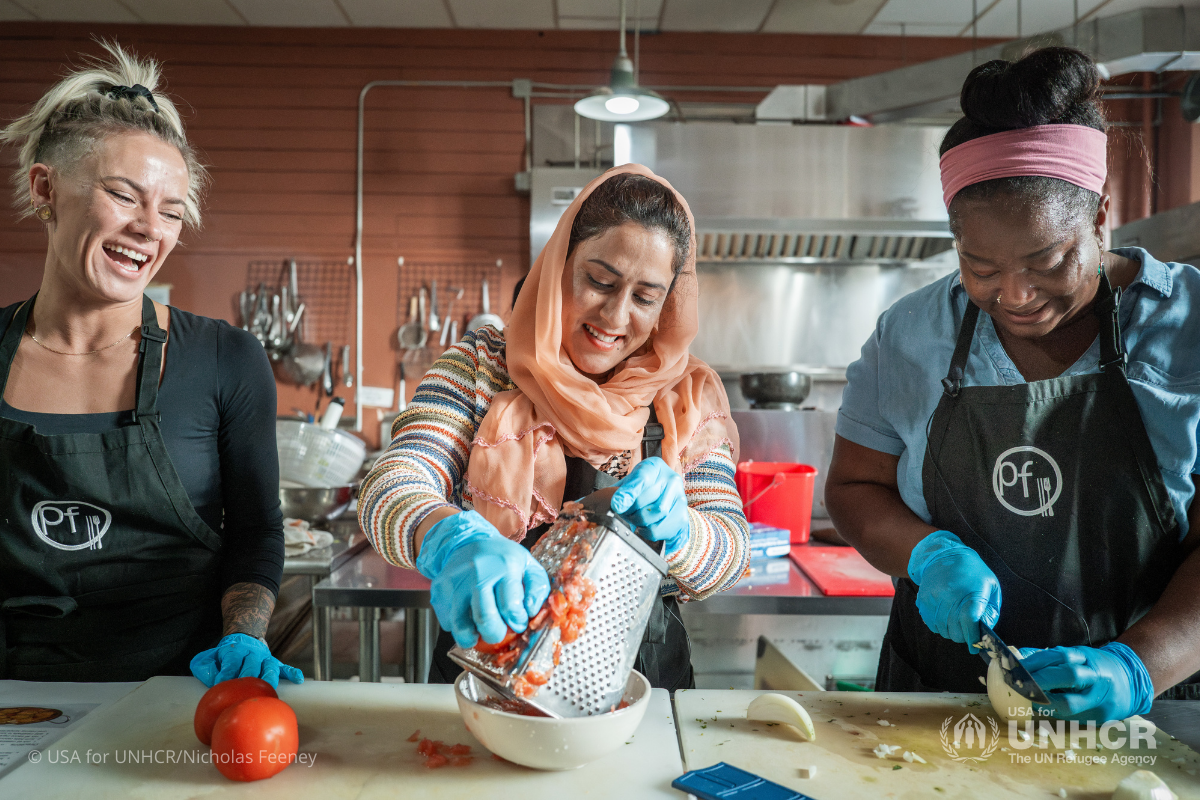
“It's written into our philosophy and our mission that we want to recognize the skill set, the experiences and the heritage of the people who are coming to live amongst us,” says Danny. “The apprentices might not have wanted a career [in the culinary industry] previously, but they realize, ‘I'm good at this.’ They just need a formal education in American workplace culture and culinary communication skills.”
Project Feast has been recognized by the state government, which has been a committed partner in supporting refugee and immigrant women while recognizing the skills they bring to communities statewide.
“The Washington Office of Refugee and Immigrant Assistance invests state and federal funding into local community organizations across the state,” shares Sarah Peterson, Washington State Refugee Coordinator & Chief of Office of Refugee & Immigrant Assistance. “In the past few years, we have built relationships with organizations like Project Feast to help support, particularly refugee women looking to gain apprenticeships in fields where they are really taking their own recipes, their own skills and learning how to turn that into a career.”
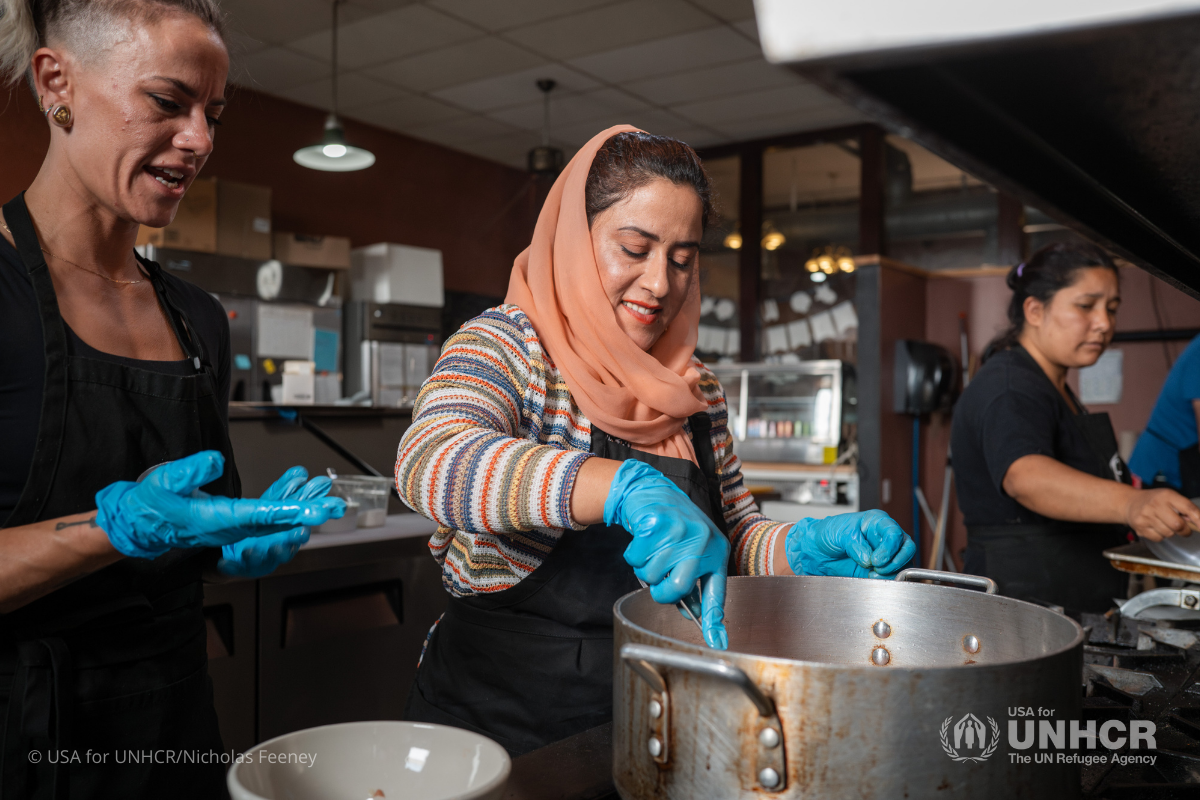
Although a teacher by training in Afghanistan, Zohal used her love of cooking family-favorite meals and traditional Afghan dishes to help jumpstart a new career in Washington State. While enrolled in Project Feast’s apprenticeship program, Zohal transformed her family's favorite meals like kofta, kabuli pulao and salata into recipes, with detailed measurement and ingredient lists and showcased those dishes on the Ubuntu Street Café menu.
Zohal’s future is brighter today thanks to the skills she developed at Project Feast. She now supports her family after finding a job cooking in a local Seattle hotel kitchen and is helping Abby grow Trini Plate, her Caribbean-styled food business.
“My hope for Zohal is that she continues to enjoy being here and finds happiness and finds success in whatever she wants to do,” says Abby. “I just know that whatever she's going to do, she's going to do incredibly well.”
How to Help
UNHCR, the UN Refugee Agency supports the full journey of refugees who have been forced to flee violence, war and persecution. Our donors help refugees in their greatest time of need, and their support builds awareness for resettled refugees living in the U.S. Refugees like Zohal and organizations like Project Feast have woven themselves into the fabric of American society and are making lasting contributions to their communities. With your help, more refugees will have the opportunity to build peaceful lives and give their families a bright future.
